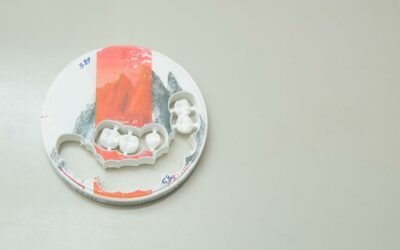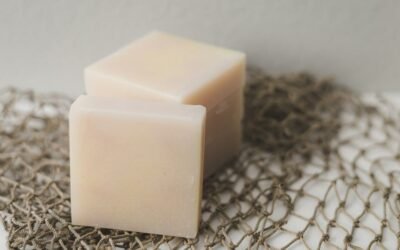Looking to improve the air quality in your home? Consider a tea tree oil air purifier. With its natural properties, tea tree oil can effectively purify the air by eliminating harmful bacteria and allergens.
In this article, we'll explore the benefits of using a tea tree oil air purifier, how it works, and provide tips for choosing the right one for your needs.
Enhance your home's atmosphere and breathe easier with a tea tree oil air purifier.
Key Takeaways
- Tea tree oil air purifiers have antimicrobial properties, reducing the risk of respiratory infections and allergies.
- They can neutralize odors, making the living space smell fresh and clean.
- Tea tree oil air purifiers have anti-inflammatory properties, beneficial for respiratory conditions like asthma.
- They are natural and eco-friendly alternatives for air purification.
Benefits of Tea Tree Oil Air Purifier
Experience the numerous benefits of a tea tree oil air purifier. By using a tea tree oil air purifier, you can improve the quality of the air you breathe in your home or office.
Tea tree oil has been found to have antimicrobial properties, which means it can help remove bacteria, viruses, and fungi from the air. This can reduce the risk of respiratory infections and allergies. Studies have also shown that tea tree oil can help neutralize odors, making your living space smell fresh and clean.
In addition, tea tree oil has been found to have anti-inflammatory properties. This can be beneficial for those who suffer from respiratory conditions such as asthma or bronchitis. By reducing inflammation in the airways, tea tree oil may help alleviate symptoms and improve breathing.
Furthermore, tea tree oil air purifiers are natural and eco-friendly alternatives to traditional air purifiers that use chemicals or synthetic fragrances. Tea tree oil is derived from the leaves of the Melaleuca alternifolia tree, making it a renewable resource.
How Tea Tree Oil Purifies the Air
To purify the air using tea tree oil, you'll need to use a tea tree oil air purifier. Tea tree oil has natural properties that make it an effective air purifier. Here's how it works:
- Antibacterial properties: Tea tree oil contains compounds like terpinen-4-ol that have antibacterial properties. When these compounds are released into the air, they can help eliminate bacteria and other microorganisms that may be present.
- Antifungal properties: Tea tree oil is also known for its antifungal properties. It can help inhibit the growth of mold and fungi, which are common allergens and can contribute to poor air quality.
- Deodorizing effects: Tea tree oil has a fresh and pleasant scent that can help mask unpleasant odors in the air. It can help neutralize and eliminate odors caused by cooking, pets, or other sources.
- Respiratory benefits: In addition to purifying the air, tea tree oil may also have respiratory benefits. It has been found to have anti-inflammatory properties that can help reduce symptoms of respiratory conditions like asthma and allergies.
Using a tea tree oil air purifier can be a natural and effective way to improve the air quality in your home or office. However, it's important to use tea tree oil in moderation and follow the instructions provided by the manufacturer to ensure safe and proper use.
Choosing the Right Tea Tree Oil Air Purifier
When choosing the right tea tree oil air purifier for your space, consider the specific features and benefits that will effectively meet your air purification needs. Tea tree oil air purifiers come in various models and sizes, so it's important to assess your requirements before making a purchase. Here is a table outlining some key factors to consider:
| Feature | Benefit |
|---|---|
| Filter type | Tea tree oil air purifiers typically use HEPA filters, which can effectively trap airborne particles such as dust, pollen, and pet dander. |
| Coverage area | Consider the size of the room or space you want to purify. Choose a purifier that can adequately clean the air in that specific area. |
| Noise level | Some air purifiers can be noisy, especially at higher fan speeds. Look for models with adjustable fan speeds or quiet operation settings, especially if you plan to use the purifier in a bedroom or office setting. |
| Maintenance | Check the maintenance requirements of the purifier, such as filter replacement frequency and ease of cleaning. |
| Additional features | Some purifiers offer extra features like timers, air quality sensors, and remote controls. Consider if these features are important to you or if you prefer a simpler model. |
Tips for Using a Tea Tree Oil Air Purifier
To get the most out of your tea tree oil air purifier, follow these tips for optimal use:
- Dilute the tea tree oil: Tea tree oil is highly concentrated and can be too strong if used undiluted. Mix a few drops of tea tree oil with water or a carrier oil, such as coconut oil or almond oil, before using it in your air purifier.
- Use the right amount: While the exact amount of tea tree oil to use may vary depending on the size of your air purifier, a general guideline is to use 5-10 drops of oil per 100 milliliters of water. This will help achieve the desired level of purification without overwhelming the senses.
- Clean the air purifier regularly: Tea tree oil has natural antimicrobial properties, but it can also leave residue in your air purifier if not cleaned regularly. Follow the manufacturer's instructions on how to clean your air purifier and remove any build-up of oil or dirt.
- Consider the duration of use: Tea tree oil can be used continuously in your air purifier, but it's recommended to use it for a maximum of 2-3 hours at a time. This will help prevent any potential irritation or sensitization to the oil.
Enhancing Your Home's Atmosphere With Tea Tree Oil Air Purifier
How can you enhance your home's atmosphere with a tea tree oil air purifier?
Tea tree oil, derived from the leaves of the Melaleuca alternifolia tree, has been widely recognized for its antimicrobial properties. When used in an air purifier, it can help improve the air quality in your home by eliminating airborne bacteria, viruses, and mold spores.
Tea tree oil acts as a natural disinfectant, killing harmful microorganisms that can cause respiratory problems and allergies. By reducing the concentration of these pollutants in the air, you can create a cleaner and healthier environment for you and your family.
To enhance your home's atmosphere with a tea tree oil air purifier, simply add a few drops of tea tree oil to the water tank or filter of your air purifier. As the air circulates through the purifier, the oil will be released into the air, effectively killing any airborne pathogens. It's important to note that tea tree oil shouldn't be used at full strength as it can be irritating to the respiratory system.
In addition to its antimicrobial properties, tea tree oil also has a refreshing and invigorating scent. This can help create a more pleasant and calming atmosphere in your home. However, it's important to ensure that the concentration of tea tree oil in the air isn't overpowering, as strong smells can also be irritating.
Conclusion
In conclusion, a tea tree oil air purifier can offer several benefits for improving the air quality in your home.
It has natural antibacterial and antifungal properties that help eliminate airborne pathogens and allergens.
By choosing the right tea tree oil air purifier and using it properly, you can create a healthier and more pleasant atmosphere in your living space.
Remember to follow the tips provided to maximize the effectiveness of your tea tree oil air purifier and enjoy the benefits it brings.






0 Comments